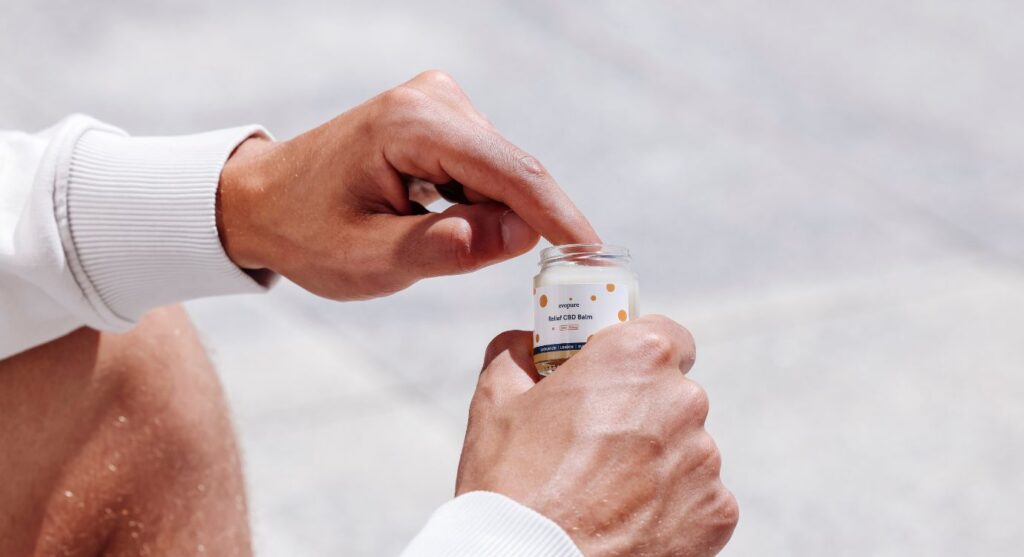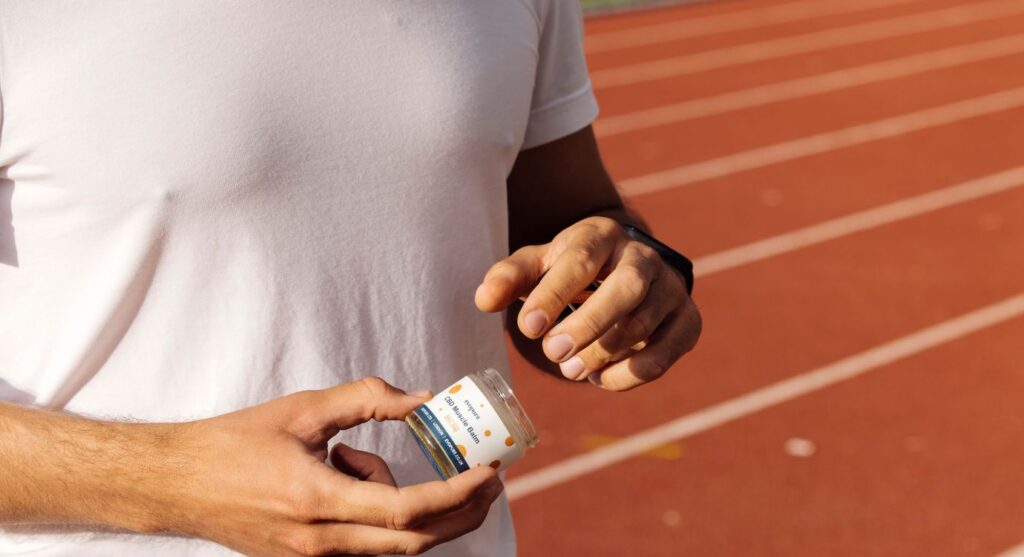Free delivery on all orders over £45
Free delivery on all orders over £45

Medically reviewed by
CBD products have come a very long way since the early days when oral drops were the only offering, and the selection available was a mere fraction of what it is now.
But more doesn’t necessarily mean better – the CBD market is well and truly over-saturated, with consumer spending forecast to hit a whopping £1 billion in the UK by 2025!
Now there’s a wide range to choose from, with literally thousands of brands boasting just about everything that could possibly be CBD-infused, from pillows to patches.
While innovation is great, it’s important for you to know you’re not getting duped. Where there’s big spending, there’s big motivation for companies to develop new products to keep the ever-increasing CBD-curious population wanting to try the latest cannabinoid craze.
But before you go splashing your cash on some weird and seemingly wonderful formulation, let’s backtrack a little.
A tried and true CBD oil is not something to be sniffed at, and a simple CBD capsule can go a long way.
And then, there are topical CBD products. These products are designed to be applied directly to the skin – with some formulated to go even deeper.
Many people are sceptical about topicals, particularly those which apparently go into the body rather than sitting on the skin’s surface (also known as transdermal CBD products).
But while it’s probably wise to treat the exploding CBD industry with a pinch of cynicism, CBD topicals have some decent science to back up their efficacy.
After all, topical and transdermal delivery systems are actually nothing new – they’re used an awful lot, which means we know a fair bit about them. So, let’s explore.
In this article, we’ll cover the following:
If you’re considering buying a topical CBD product, you need to know the difference between topical and transdermal. This will ensure you’re buying the best product for your needs.
Topical products are created for the skin. Think moisturisers and body butters.
These are the perfect choice if you’re thinking about adding CBD to your skincare routine – something many people with acne, psoriasis and eczema swear by!
Transdermal products contain ‘permeation enhancers‘ that have been added to enable the formulation to enter the body through the top three layers of the skin. Examples are muscle balms, gels and patches designed to reach deeper tissues, such as muscles and joints.
There are over 350 chemicals, glycols and fatty acids which can act as permeation enhancers. And interestingly, a number of cannabis terpenes can also have the same effect.
If you’re unsure whether a product is topical or transdermal, don’t be shy to ask the brand you’re buying from. It’s vital that you know to get the best results.

CBD muscle balms have become a gym bag essential for exercise fanatics hoping to reduce DOMS (delayed onset muscle soreness) and keep smashing their workouts all week.
Read more: CBD for athletes
Many studies have shown that the CBD molecule can reduce muscle and joint inflammation, reduce muscle spasticity and accelerate muscle recovery via transdermal and internal products. Especially when used with THC – but you’ll need a prescription for that!
One of the most common reasons people use CBD balms is in a bid to ease the discomfort of arthritis.
Although the International Association for the Study of Pain presidential task force on cannabis and cannabinoid analgesia have expressed that they feel there is still a lack of trials proving that CBD is an effective pain treatment, other research bodies and anecdotal evidence say different.
Some study results have revealed exciting potential. One particularly promising study explored the use of transdermal CBD gel on arthritic joints and found significantly reduced joint swelling, limb posture scores as a rating of spontaneous pain, immune cell infiltration and thickening of the synovial membrane.
Read more: CBD for pain relief

CBD has been hailed by many as the new skincare superhero, making CBD topicals incredibly popular.
Anecdotally, fans swear by this cannabis-derived ingredient to help rebalance the skin, soothe and even accelerate healing.
But what does the science say? Some pretty promising stuff, actually.
We have endocannabinoid receptors in every skin cell, essentially forming a whole endocannabinoid system of the skin. When working correctly with our naturally produced endocannabinoids, these receptors create something called ‘endocannabinoid tone’.
This is believed to help maintain a healthy waterproof barrier and defence for the skin. If endocannabinoids are not adequately produced, this is thought to potentially result in skin disorders like atopic dermatitis, itch, acne, hair growth/loss, and hyper/hypopigmentation.
Fortunately, phytocannabinoids (such as CBD) can be used to supplement endocannabinoids if need be.
There is some preclinical evidence indicating that CBD may also hold the potential to normalise excessive sebum production and assist with the turnover of new skin cells while reducing the effects of free-radical damage and many other processes.
Those same studies show that CBD interacts with keratinocytes, mast cells, melanocytes and sebocytes in the layers of the skin to produce lipostatic, anti-proliferative, anti-inflammatory and antioxidant effects.
It’s no wonder, with results like these, that CosmeticsDesign-Europe senior consultant, Charlotte Bowyer, has said she expects to see major players in the beauty industry, like Estee Lauder and L’Oreal, bringing CBD beauty products to the market in the next 5 years.
Read more: CBD for skin care
Taking CBD drops or capsules is an excellent choice for many, but for others, topical CBD products and transdermal CBD products are ideal.
Or you can always pair them together!
Need help determining whether you need a topical or transdermal product? Don’t hesitate to get in touch!
Sign up for the Evopure newsletter:
This product is not for use by or sale to persons under the age of 18. It should not be used if you are pregnant or nursing. Consult with a physician before use if you have a serious medical condition or use prescription medications. A Doctor’s advice should be sought before using this and any supplemental dietary product. This product is not intended to diagnose, treat, cure or prevent any disease.
© Evopure Ltd. All rights reserved Terms & Conditions Cookie Policy Sitemap